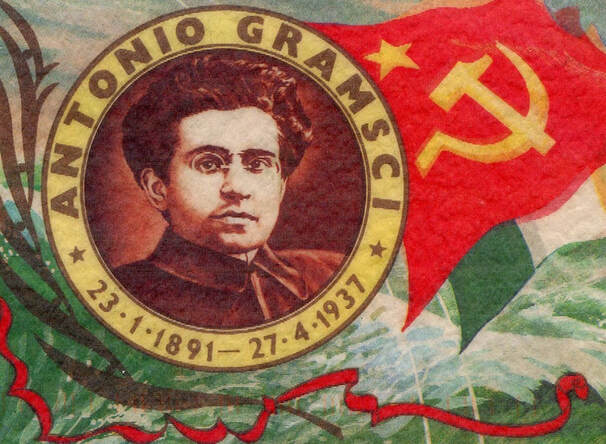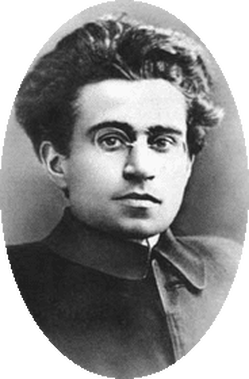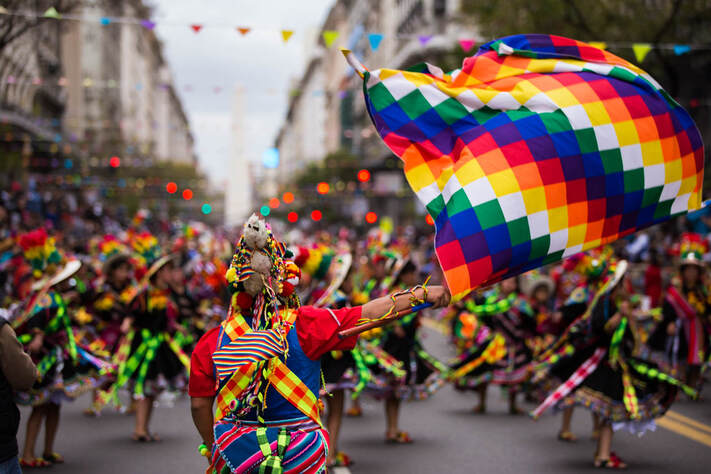|
4/30/2021 Antonio Gramsci and Political Praxis in the Materialist Theory of History. By: Sebastián LeónRead NowIn commemoration of the 84th anniversary of his death. Antonio Gramsci is one of the most relevant theorists in the history of Marxism - he is also one of the most misunderstood. Self-proclaimed heterodox leftists of all latitudes have made “neogramcism” their banner, finding in the Sardinian revolutionary a symbol of the break with real socialism, Marxism-Leninism and the materialist theory of history. Perhaps the best known figure in this intellectual trend has been the Argentine Ernesto Laclau, who once again made a key concept such as hegemony fashionable in the academic mainstream. Laclau defined his neogramscism as "post-Marxist", having completely abandoned historical and dialectical materialism, and conceived of social reality as a fundamentally discursive, unstable and radically contingent construct, in which the different forces dissatisfied with the present social arrangement could, through the elaboration of highly porous ideas and slogans, join a political force capable of challenging the common sense of society to the powers that be (that is, hegemony). Here, the conquest of socialism and communism gave way to a "radical democracy", in which every area of social life was left open to democratic deliberation to reconfigure the established order. It is necessary to differentiate Laclau, as well as other self-proclaimed “neo-Gramscians” and followers of Gramsci (whether they are “post-Marxists” or “heterodox Marxists”), from the man himself. For, although there are many who seek to decouple Gramsci and his thought from Marxism-Leninism, his effort cannot be understood if it is not as the attempt of a communist, committed to the revolutionary spirit of the October Revolution, to bring Marxist theory to life in territories that had previously remained unexplored. For, if the Bolshevik triumph had captured the imagination and hopes of Gramsci and a whole generation of Western revolutionaries, the reality of post-World War I Europe forced them to confront failure and the rise of reaction. Gramsci the Bolshevik One of the things that is fascinated about Gramsci is the extent to which he emphasizes the role of subjectivity and political will over the relentless inertia of the relations of production and the productive forces. There are those who think that the construction of socialism and emancipation has more to do with the will of human beings than with the creation of certain material conditions that make it possible; however, one must understand the weight that Gramsci gives to the subjective dimension of politics in its context. The Bolshevik triumph in Russia represented for him “the rebellion against Marx’s Capital ”, insofar as it embodied the triumph of a Marxism (that of Lenin) that came to be understood fundamentally as“ concrete analysis of the concrete situation ”with a view to the strategic organization of political action, over the positivist orthodoxy of the Second International, which clung to a linear and evolutionary model of history, in which the backward countries had to largely imitate the history of the West (necessarily having to go through industrial capitalism and the formation of liberal democracy before attempt a socialist revolution) before making their own. The Social Democrats of the Second International would place their hands on their head with the events in Russia, where the popular masses - mostly peasants - carried out the first successful socialist revolution of the 20th century. These events would profoundly mark a socialist like Gramsci, whose homeland was part of the southern periphery of Europe. However, none of this implied a voluntaristic understanding of politics: on the contrary, the Italian communist understood perfectly that the possibility of the Russians to create a socialist society was anchored in the availability of advanced technical-scientific resources in other parts of the world, which could be implemented by the communists to develop their productive forces without handing over the reins of government to the bourgeoisie. The emphasis on revolutionary organization and will did not imply a disregard for the objective conditions that constrained them; on the contrary, the consideration of these conditions should give rise to a form of collective action that found in the present an opportunity to make history, without applying abstract schemes alien to the singularity of the context. If Gramsci emphasized the weight of human agency, it was always from the coordinates of Leninism, which he saw as a truly dialectical materialism, which marked a distance with a mechanistic materialism, as harmful to revolutionary theory as voluntary idealism. Civil society, hegemony and historical bloc However, the context that the Italian Communists would have to face would be very different from the Russian one. With the rise of fascism, Gramsci, who had become head of the CPI and had been elected deputy, would be put in prison, and would remain there practically until the end of his short life. It would be there where he would elaborate the bulk of his theoretical writings, gathered in the famous volume known as The Prison Notebooks. In his writings from this stage of his life, Gramsci touches on a host of highly relevant topics, from history and economics to politics and philosophy, passing through education and culture. However, if there is an axis that articulates this scattered compendium, this will be the problem of the defeat of socialism in Europe (in particular, in Italy): why had the winds of change coming from the East finished evaporating? And why had the bourgeois reaction managed to take hold where socialism and the working class had failed? It is from this fundamental concern that Gramsci's interest in the question of hegemony arises. In his opinion, the dominance of the capitalist class over the whole of society could not be understood if it was reduced exclusively to a form of violent coercion (political or economic); rather, the power of it was to be thought of as an articulation of coercive force and persuasion. The first would correspond to what Gramsci called "political society": the strictly coercive apparatuses of the State, such as the legal apparatus, the armed forces, the police, etc. However, the second would correspond to “civil society”, which was rather the space of consensus and persuasion, where the beliefs, values and norms shared by the different members of a society were produced: the family environment, educational and religious institutions, the media, unions, etc. It was in the context of thinking about the formation of this sociocultural "common sense" that Gramsci recovered and expanded the Leninist concept of hegemony, which would come to refer to the political domain of a social class (the bourgeoisie), anchored in its pact with other social classes (such as the petty bourgeoisie) and their undisputed control of the cultural field, making common sense of their particular interests and worldview. From his point of view, it would have been this form of hegemonic control, and not its coercive power, that would have allowed the bourgeoisie to subdue the progressive forces of the continent and strengthen its dominance. It would be these theoretical elaborations that would lead Gramsci to take an interest in fields that Marxist theory had typically relegated to a more marginal place, such as the culture, tradition and faith of the popular classes. From his point of view, the Bolshevik triumph in Russia, as it had occurred in the context of war, had only been possible because the aristocratic and bourgeois elites had not managed to consolidate hegemony, and this allowed Lenin and the Bolsheviks to win in a war of maneuvers (basically, defeating them in an open confrontation in the period of the Russian Civil War). On the other hand, where the hegemony of the bourgeoisie and its allies was entrenched, the only way to seize political power and transform the relations of production was through the formation of a “historical bloc” of a “national-popular” character. With the proletariat at the head, an alliance of the popular or subaltern classes (poor and middle peasants, progressive layers of the petty bourgeoisie, and, in a context such as Latin America, the indigenous peoples) had to be formed which, united by a popular progressive culture, (through a new philosophy and a new morality, new artistic and literary expressions, and a new spirituality that articulates the experiences of the people in a key revolutionary manner) could be transformed into a counter-hegemonic force, ready to contest the bourgeois common sense of society in a "war of positions", intervening politically and finally fracturing capitalist control of the means of production. A good recent example of how the consolidation of this popular hegemony can not only win the ideological dispute to the bourgeoisie, but also guarantee the vitality of a revolutionary process, is the recent victory of the MAS in Bolivia after the coup against Evo Morales in 2019. Despite the tragic political defeat, the forces of reaction could not finish imposing themselves on Bolivian society, since the profound changes in the national culture carried out by the MAS during its years in power, had earned it the massive support of a heterogeneous but ideologically favorable people for their political project. For this reason, eventually the coup plotters had no choice but to stop postponing the elections and accept their defeat and the return to power of their enemies. Of course, the coup against Morales also leaves the lesson that a victory in the war of positions does not guarantee the uninterrupted continuity of the revolution. It is also necessary to be prepared to win in the war of maneuvers, to defend by arms the transformation of society when the reactionaries make it necessary. However, it is clear that the thought of Antonio Gramsci, far from implying a break with Marxism-Leninism, represents a crucial, truly dialectical development of the materialist theory of history, one that is of great importance for thinking about the context of contemporary bourgeois democracies. AuthorSebastián León is a philosophy teacher at the Pontifical Catholic University of Peru, where he received his MA in philosophy (2018). His main subject of interest is the history of modernity, understood as a series of cultural, economic, institutional and subjective processes, in which the impetus for emancipation and rational social organization are imbricated with new and sophisticated forms of power and social control. He is a socialist militant, and has collaborated with lectures and workshops for different grassroots organizations. Translated and Republished from Instituto Marx-Engels.
2 Comments
|
Details
Archives
July 2024
Categories
All
|



 RSS Feed
RSS Feed